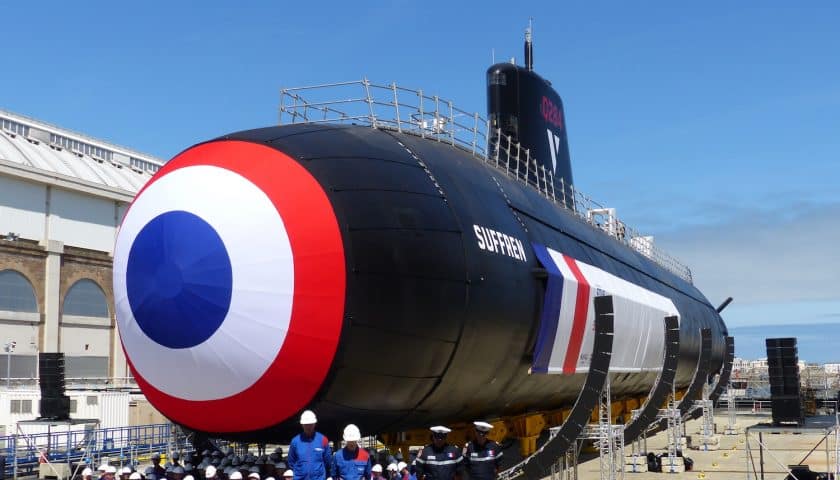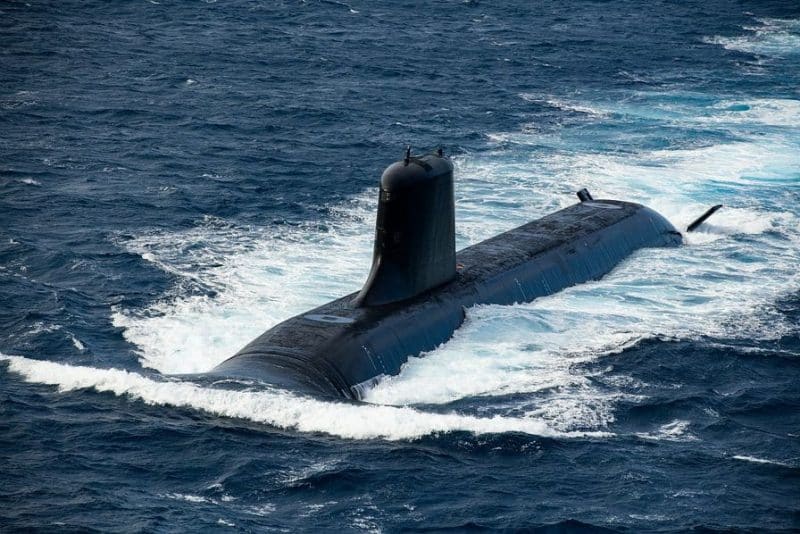The Minister of the French Armed Forces, Florence Parly, is traveling to India this weekend to meet her Indian counterpart Shri Rajnath Singh, as well as other officials from New Delhi, in order to discuss several subjects in the field of cooperation strategic and industrial between the two countries, long-standing partners and allies. In addition to the question of a possible additional order of aircraft Rafale, cooperation in the field of helicopters with a line of sight a possible contract to equip the Indian Coast Guard with Caracal helicopters, and questions of strategic cooperation in the Pacific theater shaken up in recent months both by China and by the new Aukus alliance bringing together the United States, United Kingdom and Australia, the French Minister would also have the mandate to discuss with his Indian counterpart a possible cooperation between the two countries in the field of nuclear attack submarines, and even a possible exportation of the Barracuda, the most modern of the French nuclear attack submarines. At the same time, some 4000 km away, other negotiations are said to be underway between France and this time the South Korean authorities, in order to allow Seoul to equip its new AIP KSS-III propulsion submarines with a nuclear boiler local bill. Obviously, the French authorities, as well as Naval Group, are on the offensive in the field of the export of nuclear-powered attack submarines.
The pitiful episode of the cancellation of the Australian contract for the design of 12 submarines with conventional Shortfin Barracuda propulsion by the French Naval Group, and their replacement by 8 American or British nuclear attack submarines with the model and the calendar still undetermined, had caused much ink to flow last September. For some analysts, it was even a critical blow for Naval Group, which called for a reorganization of the military submarine production sector in Europe. It may well, however, be that the effects of this cancellation, and the US-UK decision to accept the export sale of nuclear-powered submarines to Australia, have created an extremely favorable context for the United States. French naval group, likely to establish itself in this emerging but very promising market.

Indeed, by authorizing the export of nuclear-powered submarines, Joe Biden, Boris Johnson and Scott Morrison have opened a door hitherto kept firmly closed by the 5 members of the Security Council of the United Nations, custodians of this very special technology. Through a very questionable argument and the exploitation of a gaping loophole in the Non-Proliferation Treaty, the 3 countries have justified this development, breaking 40 years of cordial understanding in this field, and now opening the way for other countries with this know-how, Russia, China and France, to propose the design of sub- nuclear powered sailors in the export market.
The technology of nuclear propulsion offers many advantages for a submarine, whether it is attack, that is to say designed to destroy enemy ships and submarines, or launcher, it is to say carrying ballistic missiles for nuclear deterrence. Contrary to what is sometimes argued, it does not make submarines more discreet, in the sense of quieter, it would even be the reverse, since a submarine on batteries does not emit any parasitic noise unlike those emitted by the nuclear boiler. On the other hand, a nuclear-powered submarine has a very important and almost unlimited source of energy, allowing the ship to evolve at high speed over a very long period of time, without having to resurface. A conventional submarine, on the other hand, only has the energy stored in its batteries, so that it can either go fast or stay underwater for a long time (from several days to several weeks for the most AIP systems. efficient), but not both. It is thus common to say that a nuclear submarine can do all that a conventional submarine can do, but that the reverse is not true. And the more extensive the theater of operation, as in the case of the Pacific or Indian theater, the more nuclear propulsion is justified for the navies having to operate there.


The rest of this article is for subscribers only
The Classic subscriptions provide access to
all articles without advertising, starting at € 1,99.
Newsletter subscription
Register for the Meta-Defense Newsletter to receive the
latest fashion articles daily or weekly


Comments are closed.